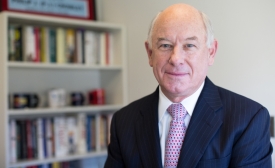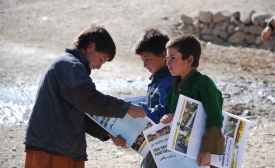international broadcasting
Do you know something about Luxembourg most people don't? Or maybe you have a specific angle on a well-known Luxembourgish subject, place or activity? If so, then Luxembourg's Economy Ministry is hoping to recruit you as a "guide for one day" as part of its latest nation-branding effort. The guided tours that will be offered through this initiative will start from June 23 and can range from local life, night life, shopping, history, Luxembourgish markets, cafés and gastronomy to leisure and sports.
Online clips —both geared for external and domestic consumption — has become a popular means for China to promote its policies and its perspective on issues, as part of its still fledgling, and often ham-fisted, soft power. Previous attempts have included aggressively nationalistic rap and cute, catchy tunes about its five-year plan.
In addition to formal public diplomacy mouthpieces like Russia Today and Sputnik, Russia employs armies of paid trolls and botnets to generate false information that can later be circulated and legitimated as if it were true. Then, in 2016, Russian military intelligence went a step further, by hacking into the private network of the Democratic National Committee, stealing information, and releasing it online to damage Hillary Clinton’s presidential candidacy.
Russia’s interference in the 2016 US presidential election, and its suspected hacking of French President Emmanuel Macron’s campaign servers, should surprise no one, given President Vladimir Putin’s (mis)understanding of soft power. Before his re-election in 2012, Putin told a Moscow newspaper that “soft power is a complex of tools and methods to achieve foreign policy goals without the use of force, through information and other means of influence.”

GW Professor and former Assistant Secretary of State for Public Affairs on his most recent book, Red Line.
The CEO of the Broadcasting Board of Governors (BBG), the parent organization for the Voice of America, told a panel commemorating World Press Freedom Day that there is a war of information happening in the world. The BBG and George Washington University's School for Media and Public Affairs organized the panel in Washington on Monday to discuss the challenges of international journalism, the rise of fake news and how media can establish credibility.

A roundup of CPD blogs on international broadcasting in honor of World Press Freedom Day.







